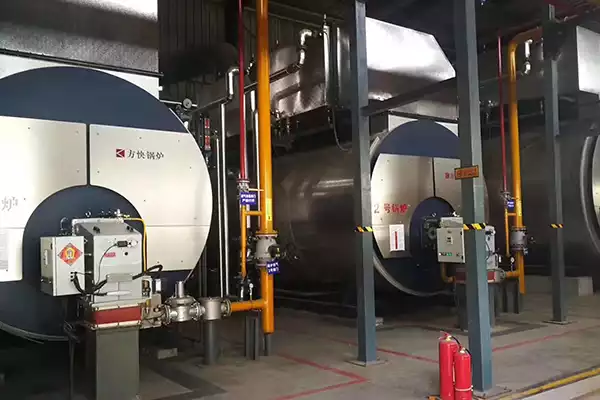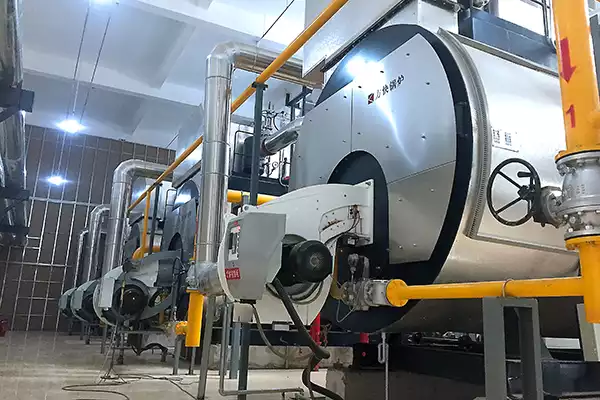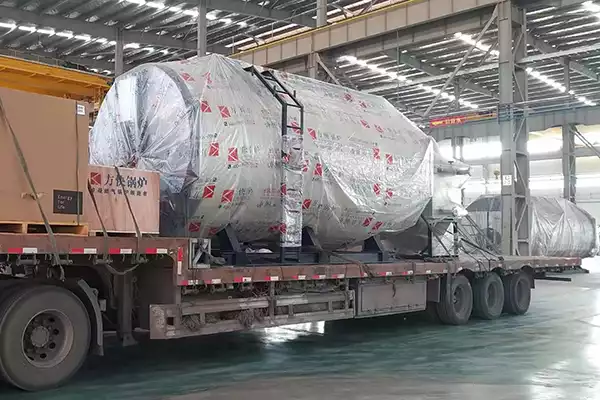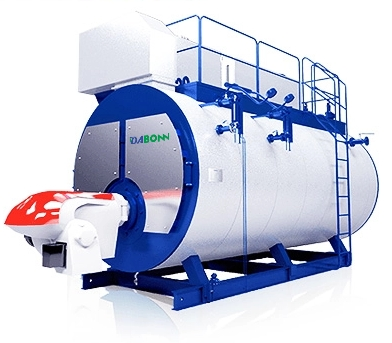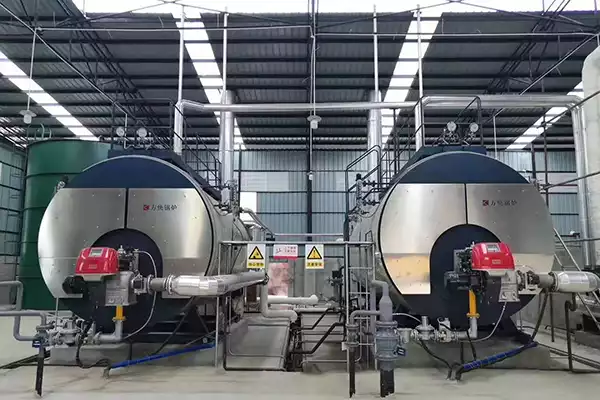
Introduction
The road to long-term savings with condensing boilers is long and totally worth it. If you’re in the market for a smart investment, you’re in the right place. Condensing boilers are the leading tech in the boiler industry and are definitely worth your time and research. Because we’re sure that, ultimately, they have the potential to be the newest member of your home.
What is a condensing boiler?
Condensing boilers are currently the most efficient type of boilers found in homes. They’re well-known for their smart work and eco-friendliness.
They work on a “Flue Gas Recovery System.” This system prevents excessive heat loss by recycling the lost heat. This makes condensing boilers a highly efficient system, saving you money in the long run.
But how do they stand out? In order to heat the water entering the system and save money and carbon emissions, the boilers are able to gather gas produced by burning fuels like gas and oil.
Now comes the big question – Do you need one?
Don’t be fooled by condensing Boiler prices at first glance. According to Green Match, they can help save up to a whopping £310 per year and help reduce your household emissions. Makes it worth it, right?
But that’s not all. Keep reading to know all about their superior efficiency!
How does a condensing boiler work?
Don’t know how it works? We got you. Let us lay out the inner workings of a condensing boiler for you. Keep in mind that there is a fair few key assembly parts at play here. Here is how it goes:
- Fuel (natural gas or LPG) and air enter the sealed combustion chamber, where they mix and burn.
- Hot combustion gases pass through a primary heat exchanger where much of their heat is transferred to the central heating water.
- The gases then pass into a secondary heat exchanger, where they are further cooled.
- When the temperature drops below the dew point, water vapor condenses into liquid water, releasing latent heat.
- The additional heat recovered from condensation gets transferred to the heating water, allowing the boiler to achieve much higher efficiencies.
- The condensed liquid water gets drained away while the cooled flue gases are vented outside.
Condensing boilers pros
It’s important to understand why they are such a smart investment for you:
- They maintain lower fuel costs for homeowners when compared to other options.
- Their 99% efficiency reduces carbon dioxide and nitrogen oxide emissions, making boilers better for the environment.
- They require less maintenance because lower exhaust gas temperatures minimize component wear.
- Boilers do not require large tanks for hot water, making them smaller.
- With proper care, they can last up to 15 years!
Condensing boilers cons
We’d be lying if we said that there is nothing to consider. There are a few cons that you should consider before investing in a condensing boiler:
- Condensing boilers cost more initially because of the additional heat exchanger and technology.
- They are highly complex and costly to install and should not be installed by anyone other than a professional.
- The condensate from the boiler needs to be drained safely as it is mildly acidic.
- They work best with low-temperature heating systems common in modern, well-insulated homes.
- Its parts may be costly to replace!
Once you sort these out, you’re all set. Be sure to check the requirements before you get one to avoid any problems in the future!
Condensing boilers vs. non-condensing boilers
The key differences between condensing and non-condensing boilers are:
- Condensing boilers are way more efficient. They can achieve 90%+ efficiency. In comparison, the best non-condensing boilers on the market may only reach up to 80% on a good day.
- They have a higher upfront cost but lower operating costs. Non-condensing boilers can have higher operational costs, which can beat the charm of their lower upfront investment.
- Condensing boilers require less maintenance because of their low temperatures.
- Ideally, a condensing boiler will typically last 1-2 decades if they are properly maintained. On the other hand, non-condensing boilers can last up to 15 years, but only if properly cared for.
Condensing boilers vs. heat pumps
The key differences are:
- Heat pumps can provide both heating and cooling from one system. On the other hand, condensing boilers only support heating.
- Heat pumps have higher upfront costs but lower operating costs. Condensing boilers are on the lower side in both.
- Chilly Weather can be a challenge for heat pumps, while condensing boilers are champs of the cold!
- Heat Pumps can have varied temperatures based on the weather while condensing boilers maintain consistency at all times.
What is the cost of a condensing boiler?
Here comes the big question, is a condensing boiler worth its big price tag? Is it really wise to spend upwards of $10,000 or more for a heating system?
And the answer is YES.
First, let us look at how much it will actually cost you:
- If you have a small home (50-100k BTU), it may cost up to – $2,000 to $4,000.
- Similarly, if you have a Medium home (100-300k BTU), it can cost around $3,000 to $6,000.
- Lastly, for a Large home or commercial building (300k+ BTU), a condensing boiler can cost upwards of $5,000 to $15,000+.
Based on your home requirements and installation costs, your initial costs can be somewhere close to those numbers. Condensing boilers are more expensive than regular boilers. This is actually the leading reason they haven’t replaced conventional boilers altogether.
Conclusion
All in one, The condensing boiler is a very smart choice if you are looking for a long-term investment for yourself. Especially with the high return on investment they provide. They are economical, eco-friendly, and definitely sustainable. So if you’re looking to buy a brand-new boiler, the answer is pretty clear about where you should start looking.
Frequently Asked Questions
Is it worth investing in a condensing boiler?
Condensing boilers provide an excellent return on investment for homeowners, with significant savings in utility bills. The upfront costs may make them an expensive choice, but they are worth the hefty price tag!
Do I need electricity to use a condensing boiler?
Yes, condensing boilers need electricity to run internal pumps, fans, controls, and all other components.
What is the difference between a condensing boiler and a combi boiler?
Simply put, condensing boilers draw heat off hot flue gases and use it to their advantage to boost energy efficiency. This raises boiler efficiency and lowers heat loss. In contrast, a Combi boiler combines hot water production and central heating into a single unit.
How much does a condensing boiler cost?
The cost of Condensing Boilers varies based on your needs. They start from $2000 but can go up to $15,000 plus installation costs.
Can I install my condensing boiler myself?
No, you should not try to install a condensing boiler all by yourself. It’s advised to pay extra money to have it installed by professionals to avoid problems and future breakdowns. It may be dangerous for your family as well.
Get your best price
Quickly compare 3 FREE quotes
- Engineer quick quote
- The overall delivery speed is fast
- Financial choice
- Low installation costs and cost savings
25 years+ of boiler R&D
More than 20 innovative technologies
